Premium Only Content

BOB Marley reggae sun splash Montego Bay
Robert Nesta Marley OM (6 February 1945 – 11 May 1981) was a Jamaican singer, songwriter, and musician. Considered one of the pioneers of reggae, his musical career was marked by fusing elements of reggae, ska, and rocksteady, as well as his distinctive vocal and songwriting style.[2][3] Marley's contributions to music increased the visibility of Jamaican music worldwide, and made him a global figure in popular culture for over a decade.[4][5] Over the course of his career Marley became known as a Rastafari icon, and he infused his music with a sense of spirituality.[6] He is also considered a global symbol of Jamaican music and culture and identity, and was controversial in his outspoken support for the legalization of marijuana, while he also advocated for Pan-Africanism.[7]
Born in Nine Mile, British Jamaica, Marley began his professional musical career in 1963, after forming Bob Marley and the Wailers. The group released its debut studio album The Wailing Wailers in 1965, which contained the single "One Love/People Get Ready"; the song was popular worldwide, and established the group as a rising figure in reggae.[8] The Wailers subsequently released eleven further studio albums; while initially employing louder instrumentation and singing, the group began engaging in rhythmic-based song construction in the late 1960s and early 1970s, which coincided with the singer's conversion to Rastafari. During this period Marley relocated to London, and the group embodied their musical shift with the release of the album The Best of The Wailers (1971).[9]
The group attained international success after the release of the albums Catch a Fire and Burnin' (both 1973), and forged a reputation as touring artists. Following the disbandment of the Wailers a year later, Marley went on to release his solo material under the band's name.[10] His debut studio album Natty Dread (1974) received positive reception, as did its follow-up Rastaman Vibration (1976). A few months after the album's release Marley survived an assassination attempt at his home in Jamaica, which prompted him to permanently relocate to London. During his time in London he recorded the album Exodus (1977); it incorporated elements of blues, soul, and British rock and enjoyed widespread commercial and critical success.
In 1977, Marley was diagnosed with acral lentiginous melanoma; he died as a result of the illness in 1981. His fans around the world expressed their grief, and he received a state funeral in Jamaica. The greatest hits album Legend was released in 1984, and became the best-selling reggae album of all time.[11] Marley also ranks as one of the best-selling music artists of all time, with estimated sales of more than 75 million records worldwide.[12] He was posthumously honored by Jamaica soon after his death with a designated Order of Merit by his nation. In 1994, he was inducted into the Rock and Roll Hall of Fame. Rolling Stone ranked him No. 11 on its list of the 100 Greatest Artists of All Time.Reggae Sunsplash is a reggae music festival first staged in 1978 in the northern part of Jamaica. In 1985 it expanded with the addition of an international touring festival. The festival ran annually until 1996, with a final event in 1998, before it was revived in 2006, then returned for a Virtual Staging in 2020.
History
The Reggae Sunsplash festival was the brainchild of five Jamaicans - Tony Johnson, Don Green, Ronnie Burke, John Wakeling, Ed Barclay.[1] The five founding directors created a company called Synergy Productions Ltd, which was responsible for promoting and producing the Reggae Sunsplash festival.[1]
The first Reggae Sunsplash festival was staged at Jarrett Park, Montego Bay, Jamaica, in June 1978 and began at dusk and continued until dawn for seven days. With the help of Peter Martin, a longtime Jamaican tourism stalwart and his public relations firm, Peter Martin Associates, the Sunsplash Festival was able to gain international exposure. It was billed as the "biggest Reggae festival in the history of the world". The festival introduced the concept of music and travel as a boost to tourism in Jamaica.[1] Prior to the staging of Reggae Sunsplash, the hotels in Jamaica were traditionally closed during the summer period.[2] The five founding partners staged the festival each year for a number of years and successfully created an annual summer tourist season in Jamaica. The success of Reggae Sunsplash led to a wave of annual music festivals in Jamaica and the Caribbean islands. The festivals popularity led to a shortage of hotel rooms and a tradition of camping out on local beaches.[3]
To promote Jamaica as a tourist and travelling target in Europe, the Jamaica Tourist Board invited in 1983 the German band Supermax as opening act of the annual festival in Montego Bay. From 1981 the festivals were filmed and recorded, with several videos and albums released, the first being Reggae Sunsplash '81: Tribute to Bob Marley, released by Elektra Records.[1] From 1987 the festival included a sound clash event, with finalists from a national sound system competition competing as a precursor to the rest of the festival.[1] The festival also expanded to include an 'oldies night' featuring stars from past eras of Jamaican music.[1] For many years the festival was emcee's by Tommy Cowan.[4]
In 1984 the Reggae Sunsplash festival also expanded into international events with a one-day festival staged at Selhurst Park in London, England. In 1985 the Reggae Sunsplash World tour was launched in the USA and Japan and subsequent years saw the Reggae Sunsplash festival touring extensively throughout North America, Europe, South America and the Far East. 1991 saw the introduction of a "Caribbean Night" featuring other Caribbean music such as soca, and the following year the festival's scope increased further with the addition of a "World Beat Night".[1]
While the festival had become hugely popular, opening new global tourist niche markets to Jamaica and attracting millions of dollars of foreign exchange into the country, it had not been a financial success, largely due to the lack of sponsorship or government support. In 1995 the Chairman of the Jamaica Tourist Board operating through a company called Radobar Holdings Ltd offered financial assistance in exchange for equity in Synergy Productions, the founders of Reggae Sunsplash. This initial offer was never consummated and in a disputed claim Radobar Holdings announced the formation of a company called Reggae Sunsplash International in Jamaica and proceeded with the hostile take over of the Reggae Sunsplash festival. The first attempt at staging Reggae Sunsplash without the original owners Synergy Productions in 1996 was a financial disaster for the new claimants. In 1997 the Reggae Sunsplash festival was postponed until 1998 when it was timed to coincide with celebrations of the birth of Bob Marley but more losses were incurred. More futile attempts at recapturing the original spirit of the Reggae Sunsplash festival were never replicated by the Radobar group.[5]
The festival was re-established by the Johnson family in 2006, but it was not successful.[2][6] The international touring festival, however, has continued.
Three of the founding directors, John Wakeling, Tony Johnson and Ed Barclay died and with the passing of Tony Johnson a number of individuals have tried to claim the rights to the festival unsuccessfully and all have failed to recapture the spirit of the legendary Reggae Sunsplash. Don Green and Ronnie Burke are the two remaining Reggae Sunsplash founders alive.
In August 2015 it was announced that Burke would be awarded the Order of Distinction by the Jamaican government in recognition of his contribution to the development of Jamaican music.[7]
In August 2019 it was announced that the festival would return to Jamaica in November 2020 after a 14-year absence
-
 1:21
1:21
Cover Music
4 years agoBob Marley - I wanna Love you
921 -
 2:29
2:29
RominAround
3 years agoSplash pad
10.4K -
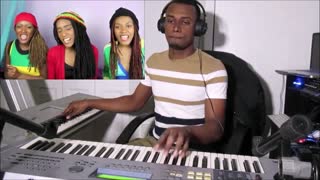 2:26
2:26
Cover Music
4 years agoBob Marley - Trenchtown Rock (cover)
80 -
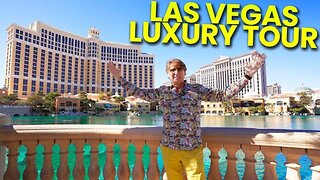 20:38
20:38
Producer Michael
19 hours agoAmazing Luxury Discoveries On The Las Vegas Strip
41.9K2 -
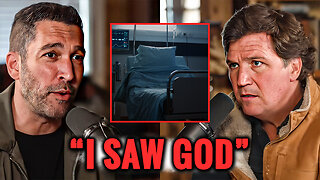 8:48
8:48
Faith Frontline
12 hours agoThe Moment That Shattered Dave Smith’s Atheist Beliefs
10K3 -
 2:39:17
2:39:17
Side Scrollers Podcast
17 hours agoKing of the Couch 2025: WHO WILL TAKE THE CROWN?!
60.4K2 -
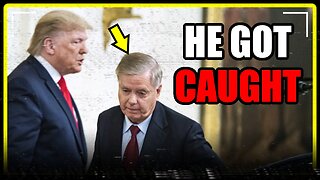 10:58
10:58
MattMorseTV
19 hours ago $4.99 earnedLindsey Graham just got EXPOSED.
22K64 -
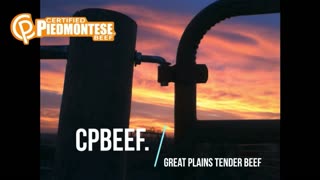 LIVE
LIVE
BEK TV
23 hours agoTrent Loos in the Morning 6/19/2025
286 watching -
 3:19
3:19
Rena Malik, M.D.
23 hours ago $1.63 earnedUrologist explains why you pee more often in the winter
16.3K8 -
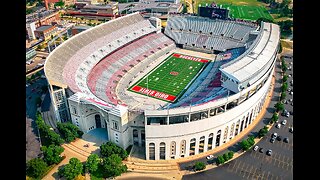 19:30
19:30
Ohio State Football and Recruiting at Buckeye Huddle
3 days agoOhio State Football: Which Playoff Format Would be the Best for the Buckeyes?
13.2K1